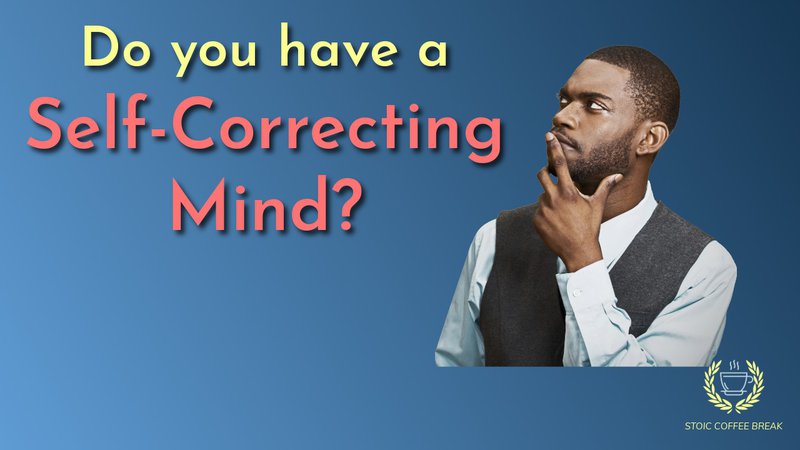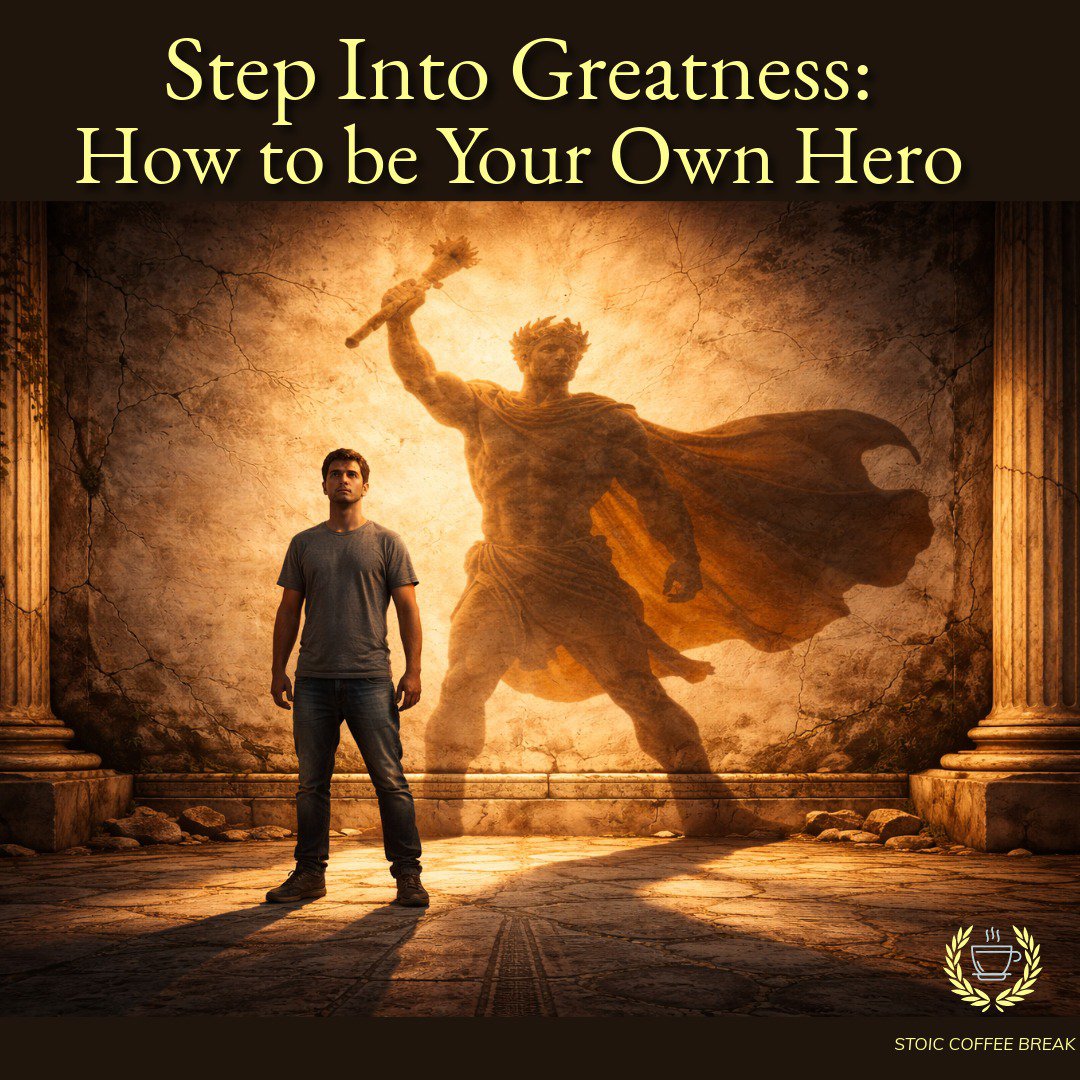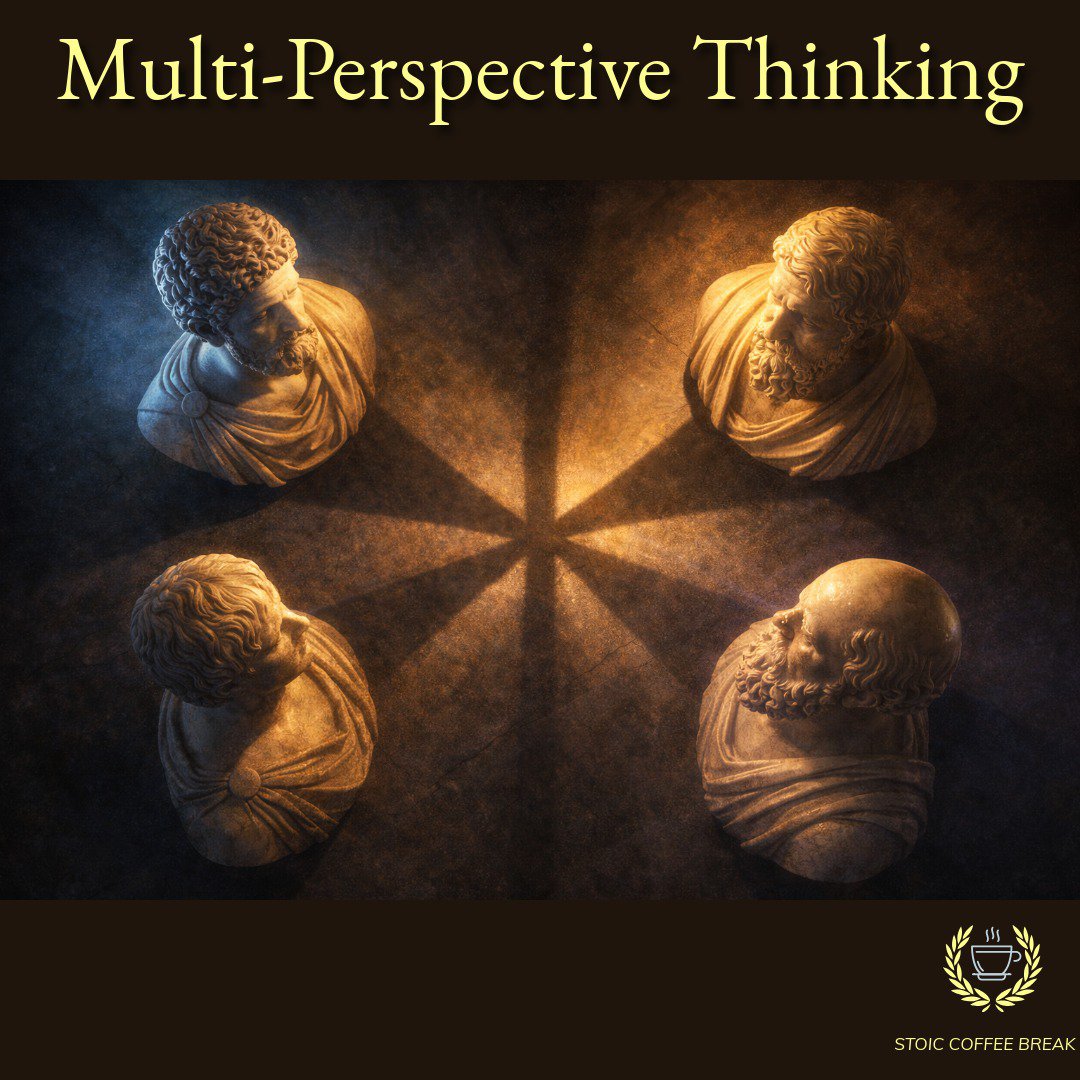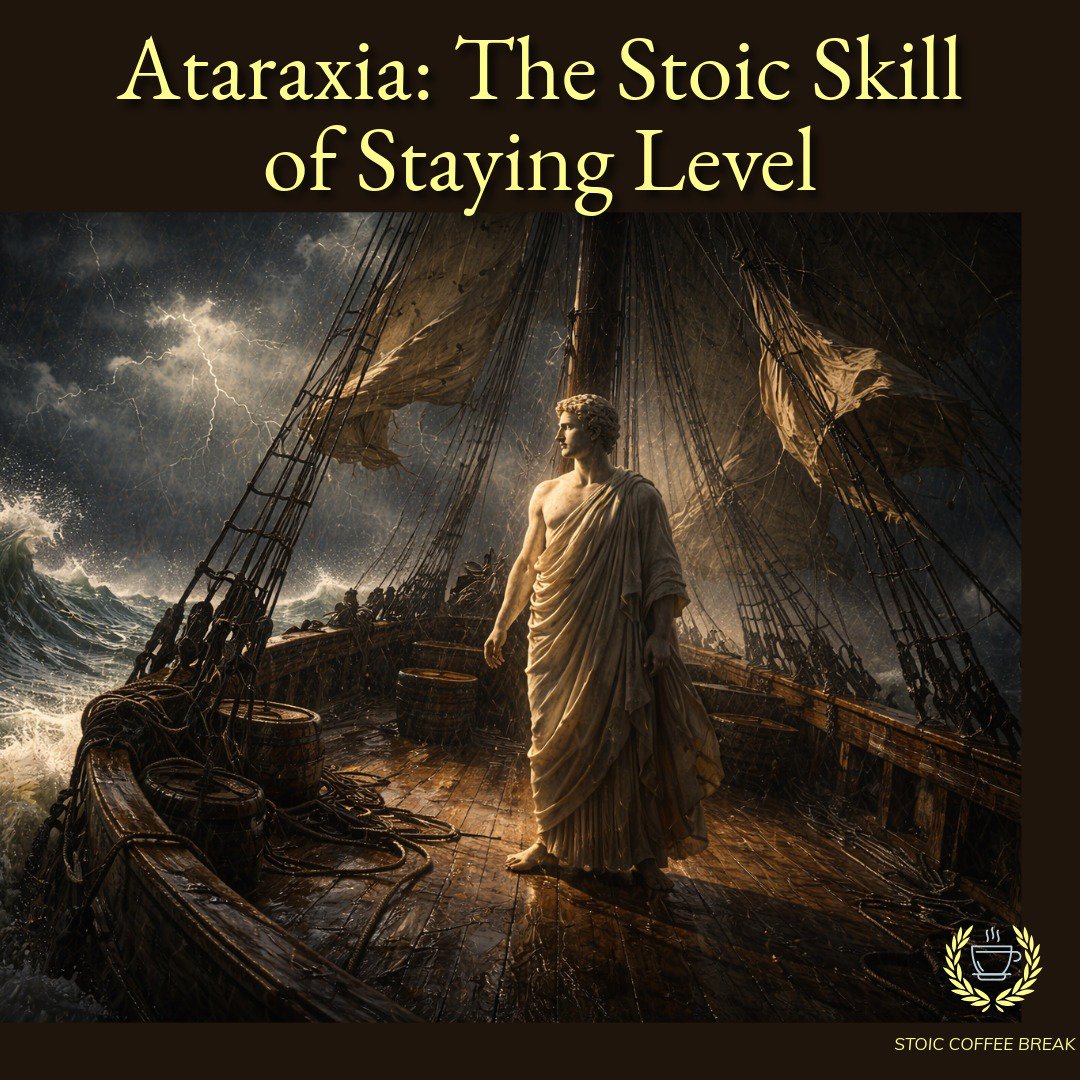
Have you ever found yourself stuck in a way of thinking that you knew deep down wasn’t serving you? Maybe it was an assumption about someone, a stubborn belief, or an emotional reaction. The good news is that our minds are built for self-correction—if we know how to use them.
“If anyone can prove and show to me that I think and act in error, I will gladly change it—for I seek the truth, by which no one was ever truly harmed.”
— Marcus Aurelius (Meditations, 6.21)
We all like to think that our perspective and world view is the correct one, and that the way we see things is how things truly are. But in my many years on the planet, I’ve found that I’ve been wrong about a lot of things. I’ve discovered that my map of the world—my beliefs, assumptions, and ideas—has often been incomplete, or simply wrong. Sometimes it was out of ignorance, or misunderstanding something.
But other times it was because I didn’t challenge my thinking around something. Often this unwillingness was because of fear. Fear that I was wrong. Fear that I would have to let go of some of my beliefs or ideas that I held so dear. Deep down, I think I fear that in changing them, I would end up changing myself.
The Stoic View on Self-Correction
Stoicism is centered on aligning thought with truth and virtue. The ability to recognize and correct errors in thinking is essential for living a virtuous life. Think of your life as a ship’s journey. Regardless of how good of sailor you might be, you’re never going to chart a straight path to your destination—you’ll be “off-course” for a good deal of your journey. There will be storms and swells and cross currents that can easily send you off in another direction. If you simply go wherever the tide takes you, then there’s a good chance you’ll end up on some random shore or maybe even smashed against the rocks.
The most important thing to remember is that constant course correction is necessary to reach the destination. As Epictetus reminds us:
“Very little is needed for everything to be upset and ruined, only a slight lapse in reason.”
Why Self-Correcting Thinking Matters
Cognitive biases, unchecked emotions, and rigid beliefs lead to poor decisions and unnecessary suffering. Self-correcting mechanisms keep us aligned with reason and virtue.
As an example let’s talk about confirmation bias. Confirmation bias is when we have a preexisting belief or judgement about something. We seek out and cling to information that proves our belief, and discard anything that might disprove our belief. And this is something that we all do. We like to be right, and dislike being wrong so anything that bolsters our ego feels easier to believe and hold onto.
The problem is that this leads to blindspots in our assessments of things. Warning flags are ignored because they don’t align with our preexisting beliefs, and often we aren’t able to course correct at the appropriate times.
“To make no mistakes is not in the power of man; but from their errors and mistakes the wise and good learn wisdom for the future.”
— Plutarch
Recognizing Errors in Thinking
So how do we find the faults in our own thinking? If our own minds are the reason we’re thinking incorrectly, then won’t we simply repeat the same mistakes? This is where the importance of self-awareness. We need to get those thoughts out of our heads in order to be able to examine them a little more closely.
I remember years ago I read about a professor at a university (I think it was MIT) who would only allow his students to sign up for his office hours to discuss a problem with an assignment after they had tried explaining it to the plant outside his office. The mere process of trying to logically explain the issue out loud helped the students more times than not to discover what they missing or not understanding.
Personally, when I’m trying to discover where I might not be seeing things clearly, one of the best things that I can do is write out what I’m thinking. Sometimes just the sheer act of putting things down on paper can help us to see the flaws in our thinking.
Getting things down on paper also gives us a record to reflect back on later to see what our thinking was like at the time. It can be helpful for spotting repeating patterns when things don’t go to plan. It’s is also helpful since our memories are never as good as we think they are, and we often remember things to our benefit, and forget the parts we got wrong.
Journaling also helps us to examine our thoughts critically and dispassionately. Sometimes we might be passionate in the moment, and it only when we look back later with a little more calm and objectivity that we can see those errors in thinking.
“Faults of the mind are like wounds of the body. After all imaginable care has been taken to heal them up, still there will be a scar left behind.”
— Seneca (Letters to Lucilius, 34)
Techniques for Self-Correction
The Stoics were big on self-correction. They understood that our minds are more than happy to play tricks on us so they found ways to counter their own bias and illogical thinking.
Impressions and Assent
The first and probably most important tool is avoid hasty judgments by delaying emotional responses. The Stoics break this down into to two components: Impressions and Assent. An impression is anything that we feel, sense, or think. This could be something that we see or hear. It could be the initial response we have in a situation. Think of this as any data that is input.
The second step is to examine it and test it and make sure that we really understand it before we make a judgment on it. Why are do I feel this way? Did I really hear that, or did I misunderstand what someone said? By taking this pause we can make sure that what we actually saw or heard or felt is legit. Once we have a better understanding of what input we have, we can make a better choice of how to respond.
Epictetus explains this clearly:
“Do not be carried away by appearances, but say: ‘Wait for me a little, impression: let me see what you are and what you represent. Let me test you.’”
— Epictetus, Discourses 3.12.14
Premeditatio Malorum
The next powerful tool I want to discuss is Premeditatio Malorum, “the premeditation of evils”. Far too often we assume the best case scenario when dealing with a problem. We assume that everything will go the way want and often end up surprised when things don’t. We look back on things we didn’t anticipate or downsides we glossed over. When we practice Premeditatio Malorum, we anticipate challenges and plan rational responses.
Think of this practice like fortifying a castle before an attack. You’ll search the outer walls and fortify any weak points. While you’ll consider all possible routes where the enemy might advance. You’ll think beyond just the obvious hazards and consider edge case strategies and how you would respond to them. By imagining as many things as possible that could go wrong, you’ll be more prepared for them than if you just assume everything will go to plan.
Seek Disconfirming Evidence
One of the best ways that you can find flaws in your thinking is to actively challenge your own beliefs. Think of it like a scientist testing their hypothesis rigorously to disprove it, rather than seeking evidence to confirm it.
A while back when I was listening to Ezra Klein’s podcast, he used the term “Steel Man” when trying to understand an argument put forward by someone he disagreed with. What is a Steel Man? It’s the practice of rather than ignoring an opposing argument, you try to prove it or make it stronger. Doing so can help find where the flaws are in that argument. But it also has the benefit that in some cases, it might show you that it actually is a better argument.
The simplest way to practice a steel man argument is to say, “What if the opposite of what I believe is true?” Then do your best, in good faith, to try and prove it. This also has the knock-on effect of understanding a larger part of the argument, rather than just your own narrow perspective.
Remember what Richard Feynman observed:
“The first principle is that you must not fool yourself — and you are the easiest person to fool.”
Learning from Mistakes
Learning from our mistake seems like such an obvious thing, but how many times have we not learned from them? How many times do we simply brush them off or look to place the blame on someone or something else? If we’re curious, and working towards understanding rather than blaming, then we’re more likely to learn. Mistakes are inevitable, but the Stoics see them as opportunities to grow in wisdom and virtue.
Marcus Aurelius’s had a habit of reflecting on each day’s actions and adjusting his approach to align with virtue:
“Failure to read what is happening in someone’s soul is not easily seen as a cause of unhappiness. But those who fail to attend to the motions of their own soul are necessarily unhappy.”
— Marcus Aurelius (Meditations, 2.8)
The Role of Others in Self-Correction
Others can provide valuable feedback and hold us accountable. Stoics valued dialogue and learning from others as a way to refine their thoughts. Getting the perspective of another person can be incredibly helpful because we often miss things because we’re so tied to our own perspective.
Often we don’t like to engage in this kind of dialog because we’re afraid that others might think we’re weak or foolish or even wrong. But as Epictetus notes:
“If you wish to improve, be content to be thought foolish and stupid.”
— Epictetus (Enchiridion, 13)
Seeking out those who can improve our thinking, is a sign of wisdom and strength. Seneca implores us to:
“Associate with those who will make a better man of you. Welcome those whom you yourself can improve.”
— Seneca (Letters to Lucilius, 7)
One of the things that I value in my friend Trever (who I interviewed on this podcast a few years ago) is that he is really good at finding the holes in my arguments. He may point out where my assumptions are wrong or incomplete, and maybe even some factors that I didn’t consider. He has, more than once, changed my perspective in some pretty big areas.
Conclusion: Progress Over Perfection
I want you to take some time this week and reflect on a recent mistake or flawed assumption. What led to the error? What assumptions did you make or quick judgments that later turned out to be wrong? Lastly, what can you do to self-correct in the future?
The Stoic path isn’t about being perfect; it’s about constant improvement. Self-correction is a lifelong process that keeps us aligned with truth and virtue. It’s about constantly challenging ourselves to think better, and be better. The more we practice, the easier it becomes, and less time we spend trying to prove we are right, and focus correcting where we are wrong.
Join us in the podcast community: Building the Unbreakable
My book Stoicism 101 is available! Order here!
Find out more at https://stoic.coffee
Watch episodes on YouTube!
Find me on linkedIn, instagram, twitter, or threads.
Thanks again for listening!


